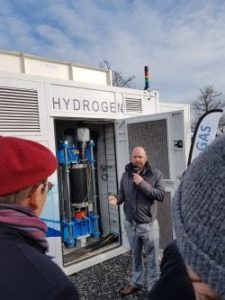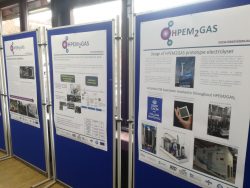The Early Steps into the Hydrogen Era: Discovery of Hydrogen as a Fuel

Introduction
Hydrogen, the most abundant chemical element in the universe, has played a pivotal role in our quest for clean and sustainable energy sources. In this article, we’ll delve into history to discover when and how hydrogen was first recognized as a fuel, and how this discovery paved the way for the energy revolution we are witnessing today.
1. Hydrogen in Ancient Alchemy
Knowledge about hydrogen dates back to ancient alchemy. Although its nature wasn’t fully understood at the time, alchemists observed its explosive properties and referred to it as “inflammable gas.” However, it wasn’t used as a fuel in a modern sense during this period.
Technical Insights: Gaseous hydrogen is highly flammable and can burn in the presence of oxygen, releasing a significant amount of energy.
2. 18th Century: Henry Cavendish and the Identification of “Inflammable Air”
It was in the 18th century when British scientist Henry Cavendish conducted crucial experiments with what he termed “inflammable air.” Cavendish not only identified hydrogen as a major component of this air but also described its combustion properties and the production of water.
Technical Insights: Cavendish determined the density of hydrogen and its precise chemical composition, laying the foundation for its future use as a fuel.
3. Early Utilization Attempts: François Isaac de Rivaz
Swiss inventor François Isaac de Rivaz was among the first to attempt practical use of hydrogen as a fuel. In 1806, he built a vehicle powered by a hydrogen engine, becoming a pioneer in the history of hydrogen propulsion.
Technical Insights: Rivaz’s engine used hydrogen stored in a gas cylinder and combined it with oxygen to produce energy, emitting only water as a byproduct.
4. The Industrial Revolution and Continued Experimentation
During the Industrial Revolution, further experiments with hydrogen as an energy source were conducted. Although its use was limited due to infrastructure and safety concerns, possibilities for industrial applications were explored.
Technical Insights: Large-scale hydrogen production from gas and water sources became a priority in the 19th century.
5. The Modern Era: Hydrogen as a Fuel in the 20th Century
In the 20th century, hydrogen as a fuel gained renewed attention. Hydrogen fuel cells were used in space and military applications. NASA employed liquid hydrogen as a rocket propellant, sparking increased interest in its applicability as a fuel source.
Technical Insights: Hydrogen fuel cells, which convert the chemical energy of hydrogen into electricity, became a key technology in space applications and fuel cell vehicles.
6. The 21st Century: Hydrogen’s Resurgence as a Fuel
In the 21st century, interest in hydrogen as a fuel saw a significant resurgence. With growing awareness of the need for clean and sustainable energy, hydrogen has become an attractive option for mobility and energy generation.
Technical Insights: Modern applications of hydrogen include fuel cell vehicles, energy storage, and the production of green hydrogen from renewable sources.
7. Conclusion
The discovery and evolution of hydrogen as a fuel throughout history stand as a testament to human curiosity and the pursuit of cleaner energy solutions. From early experiments to the present day, hydrogen has emerged as a fundamental element in the transition to a more sustainable and cleaner energy future.

























